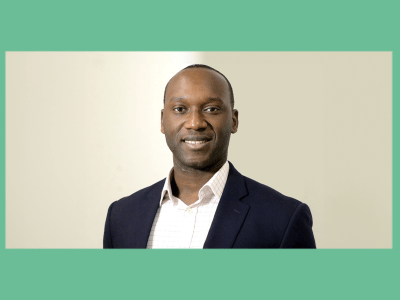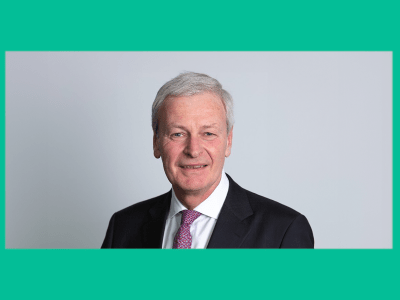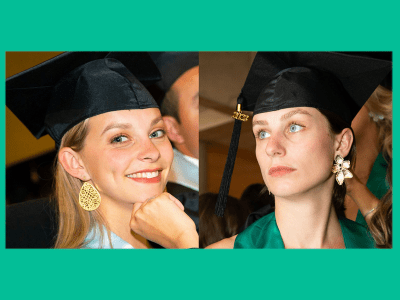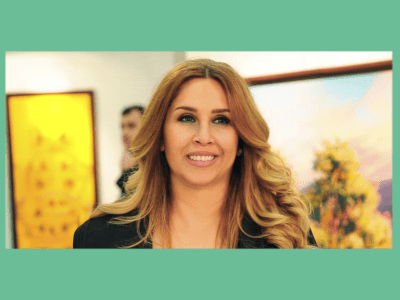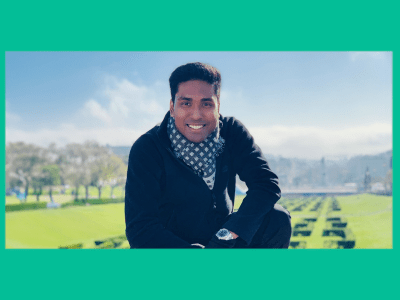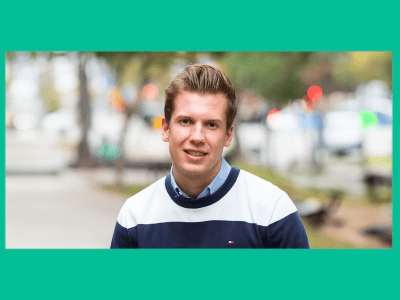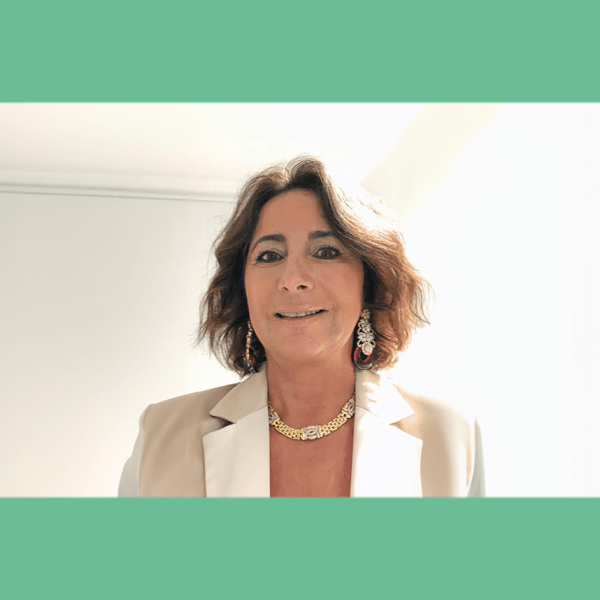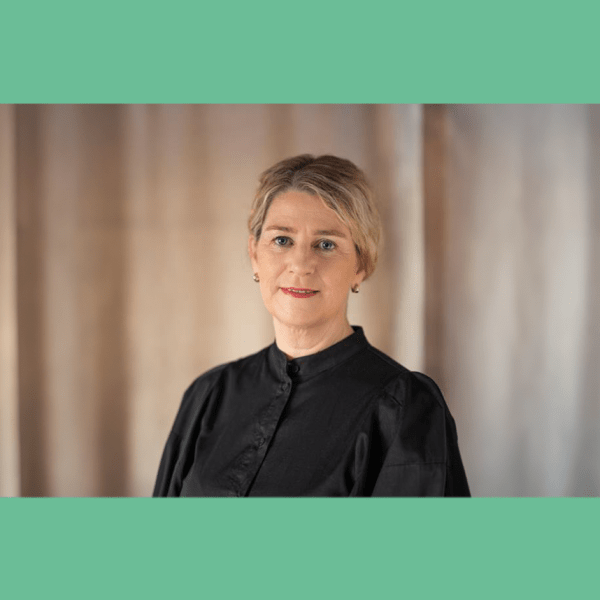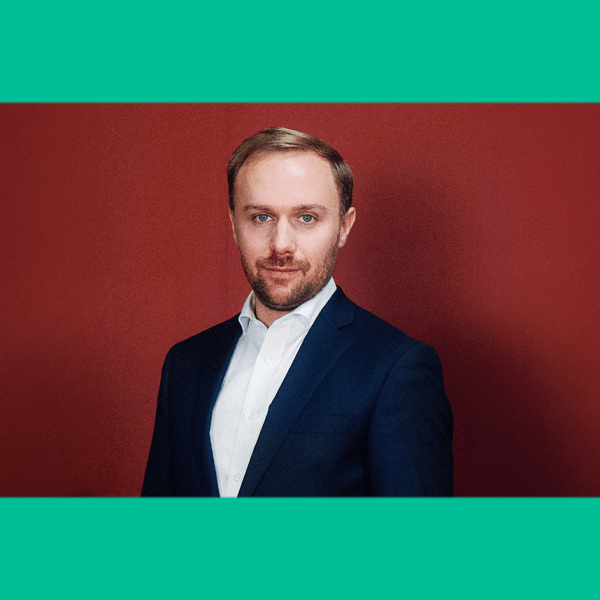Insights From Julien Tornare, CEO of Zenith Watches, LVMH Group
Julien Tornare joined Zenith in 2017 and immediately began transforming the company, bringing the brand back to the vanguard. With two decades of experience in luxury, it was a privilege to hear his insights into the future of the industry and receive his advice for launching a successful career.
In an exclusive EU Learning From Leaders conference in partnership with the Geneva Chamber of Commerce, Julien spoke with Peter Vanham, author of “Before I Was CEO”. Their thought-provoking conversation covered an array of topics from Julien’s career journey to navigating the Chinese luxury market.
You can find the video of the full event here. In this article, we’ve distilled some of the most pertinent, interesting and useful aspects of Peter and Julien’s conversation.
Thriving in China: The Luxury Market Now and in the Future
Julien lived for nearly seven years in Hong Kong while working for Vacheron Constantin, a high-end, luxury watch brand. He made a conscious decision to move to Hong Kong knowing he wanted to get to know the world’s largest luxury goods’ market. The Chinese market represents between 40-80% of business for many brands, Julien informed the audience. Understanding the Chinese market would be invaluable to building a successful career in luxury.
China has been the world engine in luxury business for the last two decades: “China is the market of the future, from a demographic point of view, but also for the taste for luxury goods that Chinese have. It is definitely the market where we [Zenith] are putting a lot of energy at the moment,” stated Julien.
Julien offered further insights into how the Chinese market developed. Customers, referred to as the ‘first generation’, were the first to buy from European and American brands. In general terms, they had lived in China throughout their lives and their taste in luxury was mostly aligned with that of the source markets. The second generation, however, speak English, often study abroad and travel around the world; they are global luxury customers. This has led to the development of a more particular taste and market in China.
For Zenith, the Chinese market, which accounts for about 40% of their sales, has been a great help in navigating the economic fall-out from the coronavirus. The first country to be affected, it was also the first to recover. As early as April, Julien was receiving requests from the Asian market to re-open. It meant that sales could resume in May. Impressively, this month’s numbers have improved on last year’s sales for the same month: “It is definitely a country where there is a taste for luxury again, and there is a will to acquire it.”
It has been difficult to forecast accurately how consumers will behave after lockdown restrictions were eased. Would they hesitate to make purchases, given the increased uncertainty and decreased disposable income? Or would they return to the shops as soon as possible because they love buying? This was a source of concern for CEOs like Julien, who noted that, “Globally, Swiss exports went down to minus 82% in April”. However, thankfully, he continued: “In China at least we see that people still feel like buying luxury, they are still going to the shops so hopefully we won’t see too much of a crash.”
These tentatively positive signs of market recovery conform with the economic picture painted by Daan Struyven, a senior economist at Goldman Sachs and another recent Learning From Leaders guest.
Building a Modern Luxury Brand
Understanding the market is just one piece of the puzzle when it comes to rejuvenating a brand like Zenith.
Innovation, Julien emphasized, is essential to maintaining brand relevance. And it’s formed a cornerstone of his strategy to bring Zenith, a brand with a 155-year history, back to the vanguard. He explained that many businesses with a similarly long history “tend to repeat the past because it is reassuring. You do a revival or a tribute to x, y, z edition that you did 40 years ago. You stay where you are because it is very safe, in a way. But you are going to die if you continue to do that.” Which is why he has led the brand into the future by “continuing to be dynamic, innovative and make 21st-century watches.”
The trick is to see innovation not as a departure from history, but as a part of it: “Tradition is not against innovation; tradition was innovation and, if I make new watches, they might be innovation today, but they will become tradition.” And it is absolutely essential, he warned, “to stay super authentic.”
Safeguarding the brand for the future required a novel approach: “In Switzerland, watch-makers can be very secretive […] At Zenith we said from day one, ‘if we want to catch the new clientele – you guys [EU students] have such great access to information compared to previous generations – we need to show what we are doing. So, we were the first to open the doors of our manufacturers to the public.” Julien’s unique approach understood the desire of new generations for products with authenticity and depth: “We believe people want to buy a real product […] After the virus we believe luxury will go back to real substance, real content, and that’s what you get with Zenith.”
The picture Julien painted of the future of the industry was reassuring. Asked by EU student Natalie Valerio from the U.S.A. about diversity, he answered: “For me, you enrich your organization the more you have people from different backgrounds, different ethnicities, different countries of origin. We want to sell our product to the whole world; how come only Swiss French people can understand the world? There is no way. And I am happy to be part of the LVMH Group, which is very clear on all the aspects of non-discrimination and gender. It is a topic we share a lot between CEOs.” The industry is slowly opening up to the world, he said and, given the current context, it’s not enough just to have good intentions: “I think it is very important in today’s world to put it on paper and to go for it.”
Diversity is not just a matter of social responsibility; it is also a question of good business: “You have to adapt to the market. We are a global brand; we sell our watches all over the world. […] As a foreigner, you need to adapt. You are the one adapting, not the country welcoming you. And I think it is very important that you create this kind of dynamic, not only by people from HQ going to the markets, but by also bringing people back from the markets to the HQ. It’s not only a matter of nationality, ethnicity, of culture or religion; it’s also a question of having a good balance between markets and HQ people with different perspectives, different glasses; they see the world in a different way.”
For Natalie Valerio, Julien’s response was heartening: “It makes me hopeful that there are leaders like you who have that mindset in the luxury industry, so thank you,” she replied. Julien’s forward-thinking approach has undoubtably been a key factor in his success.
Starting Out and Becoming One of the Youngest CEOs in the Luxury Watch Industry
Julien grew up in Geneva, where “when you walk in the streets you see watch stores, you hear watch brand names, so you are into the watch culture”. But it wasn’t until later, when he started working in the industry aged 25, that Julien fell in love with watches.
His first position was at Raymond Weil, where he was able to work directly alongside founder Mr. Raymond Weil, from whom he learned a great deal: “From my very first business trip until my last day at the company, he was a great source of inspiration, and probably my first mentor.” Mr. Weil started the company after being laid off age 56 and “managed to build an amazing business”.
It was a great first experience and gave him the confidence he needed to approach the LVMH group, where he found his next role. At Raymond Weil there hadn’t been a clear route to progress in his career and he’d started to feel a bit claustrophobic: “I was dreaming about the big names”. Once he’d been hired by exclusive luxury brand Vacheron Constantin, he stayed for 17 years, something he never imagined he’d do: “I was pretty lucky to meet the right people and they gave me opportunities. I worked in Switzerland, I was sent to the U.S. at the age of 32 and then I went to Hong Kong for seven years […] I never believed I would stay that long but I had great opportunities and I really loved and enjoyed my jobs; when you’re older you realize how much you need to like your job to be happy.”
Julien’s first role at Vacheron Constantin was taking care of the Swiss domestic market. He’d been given the opportunity to choose between that and becoming a sales area manager for Northern Europe, where he’d have been responsible for several different markets. “I thought if I learn in-depth what’s working inside the market, I’m going to learn a lot and it’s going to be a very different perspective than supervising a group of markets. On paper it looks less glamorous, but I will have more credibility”, he reflected, “and I made the right choice.”
Switzerland was “a very good laboratory to learn and to develop”, and Julien is sure it was the reason he was offered his later roles. Tourists were a large part of the customer base which gave him the chance to practice working across three languages, with different cultural contexts to inform his sales techniques.
One day, Julien recalled, “My boss came to me and said, ‘we have a problem in the U.S., the brand is doing terribly and we need to do something, we need to fix it, are you ready to go?’” Julien agreed and moved to New York City, finding when he got there, the “same brand but a totally different situation”. In Switzerland, Vacheron Constantin was beloved and well respected. In the U.S.A., however, people were much more pragmatic. Julien was faced with a host of retail store managers telling him; “Profit per square foot is very bad. We’re going to kick your brand out of our store.”
Turning the American market around for the brand was a considerable challenge, and Julien threw himself into the task. “Each wrist was a little step towards victory”, he shared. The brand is high-end luxury and their watches are commensurately expensive. He was not selling just a watch but quality and experience. Julien’s strategy was to approach thought leaders, or influencers as they would now be called, to ask for their support. To those doubtful retailers he said: “I understand you don’t trust me but give me six months to make a plan for how we can work together.” Julien knew that if he could convince these influential figures, they would in turn convince the rest of the market. And it worked. But it was incredibly hard work and Julien spent barely any time at home, “sometimes crossing the country to have dinner with watch collectors.” But it was not just the retailers and collectors Julien needed to convince. Brand HQ in Switzerland also needed convincing: “They had the feeling that the future was China and they were investing everything in China.” Julien had to persuade them there was a U.S. market and that he could reach it, if they’d give him the support and resources to do so.
After four years in the U.S.A., having successfully turned the brand around, Julien returned to Switzerland and told his CEO that he wanted the opportunity to work in Asia, which he knew was an important luxury market. It wasn’t long before a role came up and Julien moved his family to Hong Kong to become managing director for Asia Pacific.
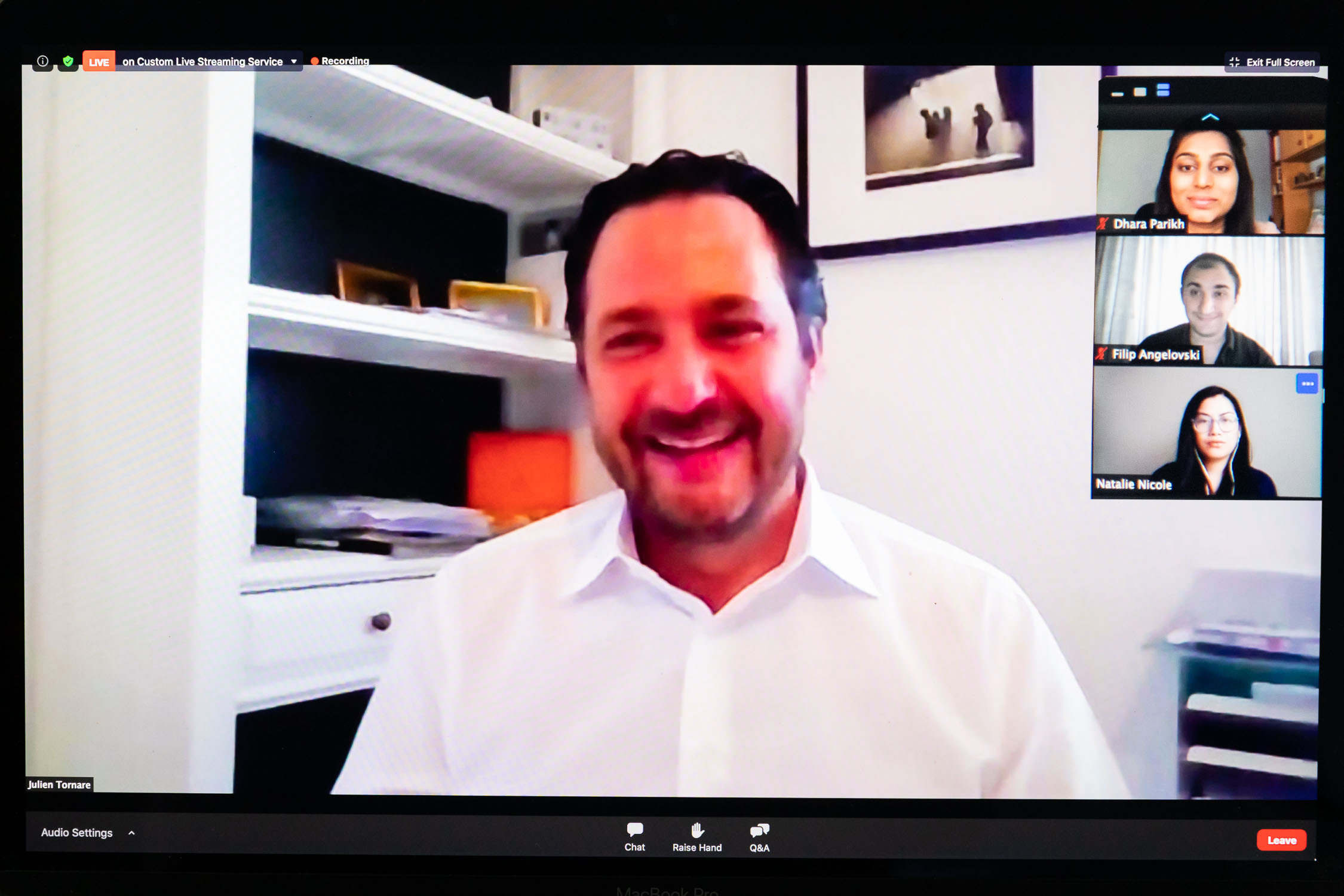
Again, Julien was faced with a new challenge: “It was a totally different experience to the U.S.; in the U.S. the brand was doing poorly and I had to fix it, in Asia the brand was already strong and I had to bring it to the next level.” Then, several years of easy growth into the role, the whole business model was challenged. In 2014, a new government was elected in China and anti-corruption laws meant the practice of gifting, a fundamental aspect of their market, started to fall out of practice. “All the brands got a big hit during this period and had to rebuild by going to look for more end clients”, Julien recalled. To do so, they had open new boutiques, develop brand awareness and build affinities with clients. “Basically, you had to work harder, and it took 18 to 24 months to reach the levels we had before […] Although on one hand we were happy it was happening in a country like China, with such a big demographic and such a hunger for luxury goods because we could recover, by doing a good job.”, Julien remarked.
Having navigated that significant bump in the road, just as it became time for a new challenge, Julien received a call from Jean-Claude Biver, a legend of the luxury watch industry. In was in part the opportunity to work with Jean-Claude, “one of the most energizing people I have ever met”, Julien confessed, that led him to accept the role of CEO at Zenith watches. And “Becoming a CEO of a brand was the next step I was looking for because I had been sales director and I had been in the key markets”, plus, he remarked, “I always kept an eye on Zenith.”
Recognizing opportunity is an important skill for building a successful career. Julien saw possibility in the new role: “When you pick up a job, if you come after a manager, or a CEO, or a team that squeezed all the lemons, then there is not much juice to get and you can be there, you can sit in the chair, but you’re not going to bring much to the brand. But I knew the leverage with Zenith was still very big.”
True to his prediction, Julien has transformed the brand and, in the process, has laid the foundations for the future of Swiss watchmaking.
Tips to Pursue a Career in Luxury
Julien offered EU students keen to enter the luxury industry some valuable advice.
First of all, “Try to attract attention and don’t just send the simple resume and letter”, he advised, recalling a recent hire he made when a woman got in touch with him via LinkedIn to share some ideas about how she felt the company could do better.
“We need innovation,” he said: “I want people to surprise me.”
“I personally hire personalities. I ask people to have an entrepreneurial spirit. I ask people to bring new ideas”, said Julien, adding that he does not look for experience in the industry: “Watches you can learn on the job”; “You need to refresh me because I am already surrounded by people from the watch industry”. However, recruits looking for a foothold in luxury might find that different brands have different practices when it comes to experience. The industry as a whole, Julien commented, needs to be a lot more open. While he looks for experts in specific aspects of business, such as retail, others require existing knowledge of the watchmaking world.
Entrepreneurial spirit is key to success, as Julien emphasized throughout the conversation: “In the luxury business we tend to be a bit conservative […] today we have a lot of challenges in how we appeal to new generations, to millennials, and how we keep them interested in the luxury goods industry. And it’s by bringing innovation, by bringing creativity; luxury is not about repeating the past, if you do that, you’ll end up being a museum brand.” Julien is keen to fix this pattern of repetition, so looks to different sources for his recruits, working with schools and visiting innovation summits to find the talent they need to push the boundaries forwards: “Even though we are 155 years old, as a company we ask people to think not so much about the best practice, as the next practice.”
Building a career and business that’ll thrive in the future requires dedication to innovation and renewal, paying careful attention to the needs and desires of the next generation of consumers.
Your Future in Luxury Starts Here
Julien painted a hopeful vision of an innovative and diverse future for the industry. If you’re interested in forging a career in the exciting world of luxury, discover the programs at EU Business School that will help you carve a path to success. We offer a range of high-ranking business degrees, from our BA (Hons) in Business Management (International Business) to our Master in Fashion & Luxury Business. Our English-taught, dynamic and pragmatic approach will prepare you for success in the global business of luxury.


